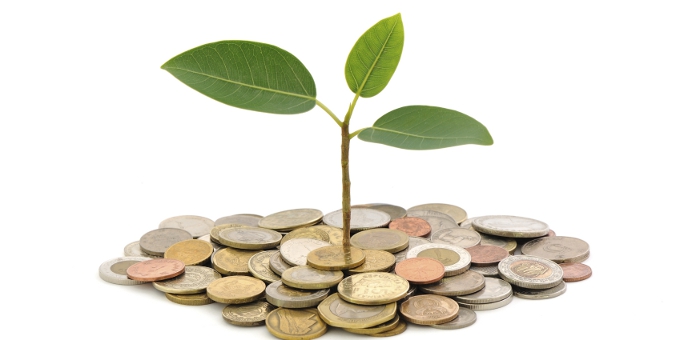Confidence over the recovery of Nigeria’s economy received a welcome boost in February. Official reports illustrated the nation’s economy roaring back to life last year, after encountering its first recession in over 25 years. Nigeria’s GDP growth expanded by an impressive 1.92% in the final quarter of 2017 which elevated full year 2017 growth to 0.82% when compared to the -1.58% seen in 2016.
The combination of recovering oil prices easing inflationary pressures and foreign exchange stability, stimulated the nation’s economic recovery. Africa’s largest economy has yet again shown the global arena its unyielding resilience and ability to reach the 3.5% growth target estimated by the Federal Government. If the current momentum holds and economic data continues to follow a positive trajectory, 2018 could be a year to remember for the nation.
Digging deeper into Nigeria’s GDP figure for Q4, growth was fueled by crude oil production, natural gas, metal ores, construction, transportation, trade, electricity and gas production. A highly encouraging takeaway is how economic growth was derived from other sustainable sources. It is likely that Nigeria’s visible effort to break away from the grips of oil reliance has positively impacted their economic outlook – ultimately boosting investor sentiment.
Focusing on other core economic metrics, inflationary pressures are slowly becoming a theme of the past in Nigeria. It must be kept in mind that inflation dropped for the 13th consecutive month in January settling at 15.13% ,while foreign exchange reserve’s gained 4.15% in the past month to reach $41.8 billion. With the economy attracting a grand $12.2 billion in investment inflows during 2017, it is not difficult to comprehend why sentiment towards Nigeria is turning increasingly bullish. There is a suspicion that the combination of easing inflationary pressures and improving economic outlook is encouraging the Central Bank of Nigeria to cut rates sooner than anticipated. A rate cut has the ability to stimulate economic growth and push GDP closer to the 3.5% target this year.
Advertisement
Taking a peek into the foreign exchange, a strong degree of Naira stability was witnessed in February with the local currency steadily appreciating against the Dollar. While the Importers and Exporters window has played a role in the Naira’s steady price action, another factor could be the overall positive sentiment. Although the Naira has scope to appreciate further, external risks revolving around the Dollar and Oil prices must not be overlooked. A resurgent Dollar has the ability to punish emerging market currencies with the Naira being no exception. Recent developments concerning Federal Reserve Chairman Jerome Powell should be closely watched as we enter the new trading month. Hawkish comments from Powell have already fueled market speculation of the Federal Reserve raising US interest rates four times this year. The allure of higher interest rates and appreciating Dollar could spark capital outflows from Nigeria consequently pressuring the Naira.
With regards to Oil, the outlook still remains somewhat cloudy as investors grapple with a selection of fundamental themes impacting the commodity. While the bull’s argument for oil to stabilize is likely based on OPEC’s production cuts, risk’s associated with risk production from U.S Shale continues to empower the bears. While we have repeatedly said that Nigeria could continue benefiting from oil prices short term, lessons from the past have proven that this is not a long term solution. With Oil prices vulnerable to heavy losses amid soaring U.S Shale production, it remains highly encouraging that Nigeria is making efforts to diversify from oil reliance.
As we head into the final trading month of the first quarter of 2017, markets will be heavily focusing on the developments surrounded the 2018 budget. For Nigeria to maintain the strong momentum, it is critical that the 2018 budget is approved. This will reduce uncertainty and boost investor confidence ultimately supporting the nation further.
Advertisement
Otunuga is a research analyst at FXTM
Add a comment







